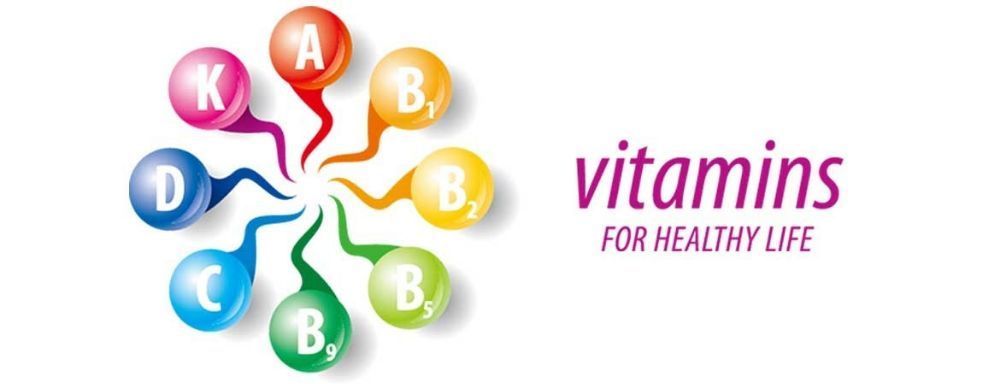What's Your Daily Vitamin Requirement
Himanshi Jain
Vitamins are nutrients that your body needs to work and fight against the disease. Your body can not produce vitamins, so you have to get them through food that they eat or in some cases through a supplement. There are 13 vitamins that are working well for your body. Understanding different types of knowledge and purpose of these vitamins are important for good health.
Why we need to take vitamins:
They’re natural components of foods; usually present in very small amounts. They’re essential for normal physiologic function (e.g., growth, reproduction, etc). When absent from the diet, they will cause a specific deficiency. A lack of vitamins can cause a range of illnesses including Scurvy, which is caused by a lack of vitamin C and results in spotty skin, losing teeth, and bleeding and swollen gums, and Rickets, a disease which causes the softening of bone tissue, which comes from Vitamin D deficiency. If we don’t have enough vitamins in our diet, our bodies will struggle to stay healthy and work as normal.
Daily Vitamins Requirement
Vitamins
Recommended Dietary Allowance
Upper Tolerable Limit (UL)
Choline (Vitamin B complex)
Age 70 and older: 1,800 mg/day
Women: 425 mg/day *
3,500 mg/day
Vitamin A
Men: 3,000 IU/day
Women: 2,310 IU/day
10,000 IU/day
Vitamin B3
Men: 16 mg/day
Women: 14 mg/day
5 mg/day
Vitamin B6
Men age 19-50: 1.3 mg/day
Men age 51 up:1.7 mg/day
Women age 19-50: 1.3 mg/day
Women age 19-50: 1.3 mg/day
Women age 51 up: 1.5 mg/day
100 mg/day
Vitamin C
Men: 90 mg/day
Women: 75 mg/day
2,000 mg/day
Vitamin D
Age 1-70: 15 micrograms/day (600 IU, or international units) *
Age 70 and older: 20micrograms/day (800 IU) *
100 micrograms/day
(4,000 IU)
Vitamin E
22.4 IU/day
1,500 IU/day
This applies only to vitamin E in supplements or fortified foods. There is no upper limit for vitamin E from natural sources.
Vitamins are essential organic compounds that help keep your body running smoothly. There are different kinds of vitamins, A, B, C, D, E, and K, all of which play different roles inside our bodies.
v Vitamin A helps form and maintain healthy teeth, bones, soft tissue,
v Vitamin B6 is also called pyridoxine. Vitamin B6 helps form red blood cells and maintain brain function. This vitamin also plays an important role in the proteins that are part of many chemical reactions in the body. The more protein you eat the more pyridoxine your body requires.
v Vitamin B12, like the other B vitamins, is important for metabolism. It also helps form red blood cells and maintain the central nervous system.
v Vitamin C, also called ascorbic acid, is an antioxidant that promotes healthy teeth and gums. It helps the body absorb iron and maintain healthy tissue. It also promotes wound healing.
v Vitamin D is also known as the "sunshine vitamin," since it is made by the body after being in the sun. Ten to 15 minutes of sunshine 3 times a week is enough to produce the body's requirement of vitamin D for most people at most latitudes. People who do not live in sunny places may not make enough vitamin D. It is very hard to get enough vitamin D from food sources alone. Vitamin D helps the body absorb calcium. You need calcium for the normal development and maintenance of healthy teeth and bones. It also helps maintain proper blood levels of calcium and phosphorus.
v Vitamin E is an antioxidant also known as tocopherol. It helps the body form red blood cells and
v Vitamin K is not listed among the essential vitamins, but without
v Biotin is essential for the metabolism of proteins and carbohydrates, and in the production of hormones and cholesterol.
v Niacin is a B vitamin that helps maintain healthy skin and nerves. It also has cholesterol-lowering effects at higher doses.
v Folate works with vitamin B12 to help form red blood cells. It is needed for the production of DNA, which controls tissue growth and cell function. Any woman who is pregnant should be sure to get enough folate. Low levels of folate are linked to birth defects such as spina bifida. Many foods are now fortified with folic acid.
v Pantothenic acid is essential for the metabolism of food. It also plays a role in the production of hormones and cholesterol.
v Riboflavin (vitamin B2) works with the other B vitamins. It is important for body growth and the production of red blood cells.
v Thiamine (vitamin B1) helps the body cells change carbohydrates into energy. Getting enough carbohydrates is very important during pregnancy and breastfeeding. It is also essential for heart function and healthy nerve cells.
Source: Pharmacyonnet


























